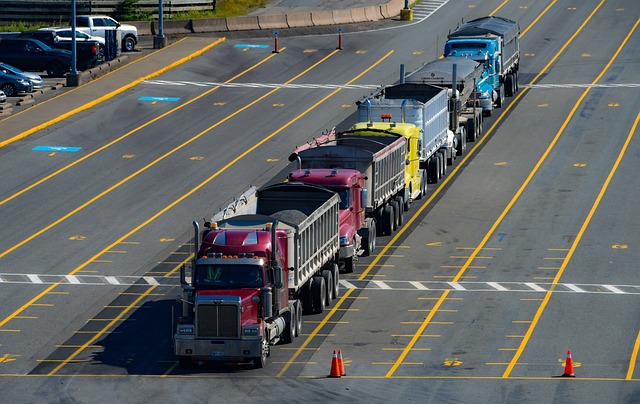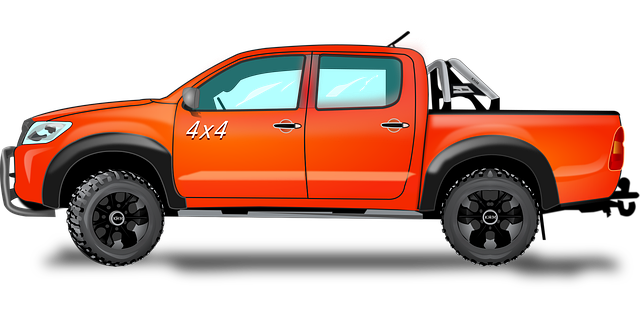For solo operators in transportation or logistics, cargo protection insurance is a crucial but often overlooked component of risk management. Specialized coverage shields against physical damage, loss, or theft during transit, mitigating financial vulnerabilities and ensuring business resilience. By evaluating personal and business risks, including potential hazards like damaged goods, accidents, and unforeseen events, these operators can tailor insurance policies to specific needs. Cargo protection for solo operators offers comprehensive coverage for business assets, shielding from significant financial setbacks and ensuring continuity. Regularly comparing quotes, reading fine print, and adjusting policies based on evolving circumstances ensures optimal, cost-effective protection.
Securing robust insurance that shields both personal and business assets is paramount for entrepreneurs, especially solo operators navigating today’s competitive landscape. This comprehensive guide explores essential steps in mitigating risks, from understanding specialized cargo protection for your business operations to evaluating intertwined personal and professional threats. We delve into diverse insurance policies, strategic coverage optimization, and savvy savings tips, empowering informed decisions for asset preservation.
Understanding Cargo Protection for Solo Operators

For solo operators, especially those involved in transportation or logistics, cargo protection is a critical yet often overlooked aspect of their business. Traditional insurance policies might not adequately cover the unique risks associated with handling goods belonging to others. This is where specialized cargo protection insurance steps in as a lifeline. It offers comprehensive coverage for physical damage, loss, or theft of cargo during transit, providing peace of mind and financial security.
Understanding cargo protection for solo operators involves recognizing the specific challenges they face. From securing fragile items to mitigating risks during unpredictable travel conditions, these policies are designed to cover potential liabilities. By investing in such insurance, solo operators can ensure their business remains robust and protect themselves from significant financial losses that could cripple their operations.
Assessing Your Personal and Business Risks

Evaluating your personal and business risks is a crucial step in securing appropriate insurance coverage. This process involves identifying potential hazards and their impact on both your personal life and enterprise. For solo operators, especially those involved in cargo protection, understanding unique risks is essential. These might include financial losses due to damaged or lost goods, legal liabilities arising from accidents, and the impact of unforeseen events on your ability to work.
By thoroughly assessing these risks, you can tailor your insurance policy to meet specific needs. For instance, cargo protection insurance designed for solo operators offers comprehensive coverage for business assets during transit, storage, or delivery. This ensures that in the event of loss, damage, or theft, your business remains shielded from significant financial setbacks, allowing for continuity and stability.
Types of Insurance Policies Available

In today’s unpredictable world, securing insurance that protects both personal and business assets is more important than ever. For solo operators, especially those involved in transportation or logistics, having the right coverage can mean the difference between a smooth journey and a financial nightmare. One crucial aspect to consider is cargo protection for solo operators. Policies designed for this specific group offer specialized coverage for goods in transit, ensuring that even minor incidents don’t turn into costly losses.
Beyond cargo protection, various types of insurance policies are available to cater to diverse needs. These include general liability insurance, which shields against claims of bodily injury or property damage; professional liability insurance, designed to protect against errors and omissions; and comprehensive business insurance that combines multiple coverage options into a single policy. Solo operators should carefully evaluate their unique risks and choose policies that offer tailored protection for both personal and professional spheres.
Strategies for Optimizing Coverage and Savings

Securing adequate insurance that covers both personal and business assets is a strategic move for any individual or company, especially solo operators navigating the complexities of cargo protection. To optimize coverage and maximize savings, solo operators should consider insuring only what they need. This tailored approach ensures they aren’t paying for unnecessary coverage while still maintaining robust protection for their valuable cargo. For instance, if you’re transporting specialized goods, focus on insuring against specific risks associated with those items rather than opting for a broader, more expensive policy.
Another strategy is to compare quotes from multiple insurers and choose the one that offers the best combination of comprehensive coverage and affordable premiums. It’s important to read the fine print and understand what’s covered and what’s excluded in each policy. Additionally, reviewing your policy regularly, especially after significant changes in your business or personal circumstances, can help ensure you’re still protected appropriately. For solo operators, this might mean reassessing coverage levels as their cargo protection needs evolve with changes in transport methods or the types of goods carried.
Securing appropriate insurance that covers both personal and business assets is a strategic move for any individual, especially solo operators in high-risk industries. By understanding cargo protection options tailored for their unique needs, operators can safeguard their investments and mitigate potential losses. Assessing risks, exploring diverse insurance policies, and implementing coverage optimization strategies are key steps towards achieving comprehensive security. Remember that the right insurance plan acts as a shield, offering peace of mind and financial safeguards in an unpredictable world. For solo operators, this means continued operation with reduced worry and enhanced resilience against unforeseen events.
